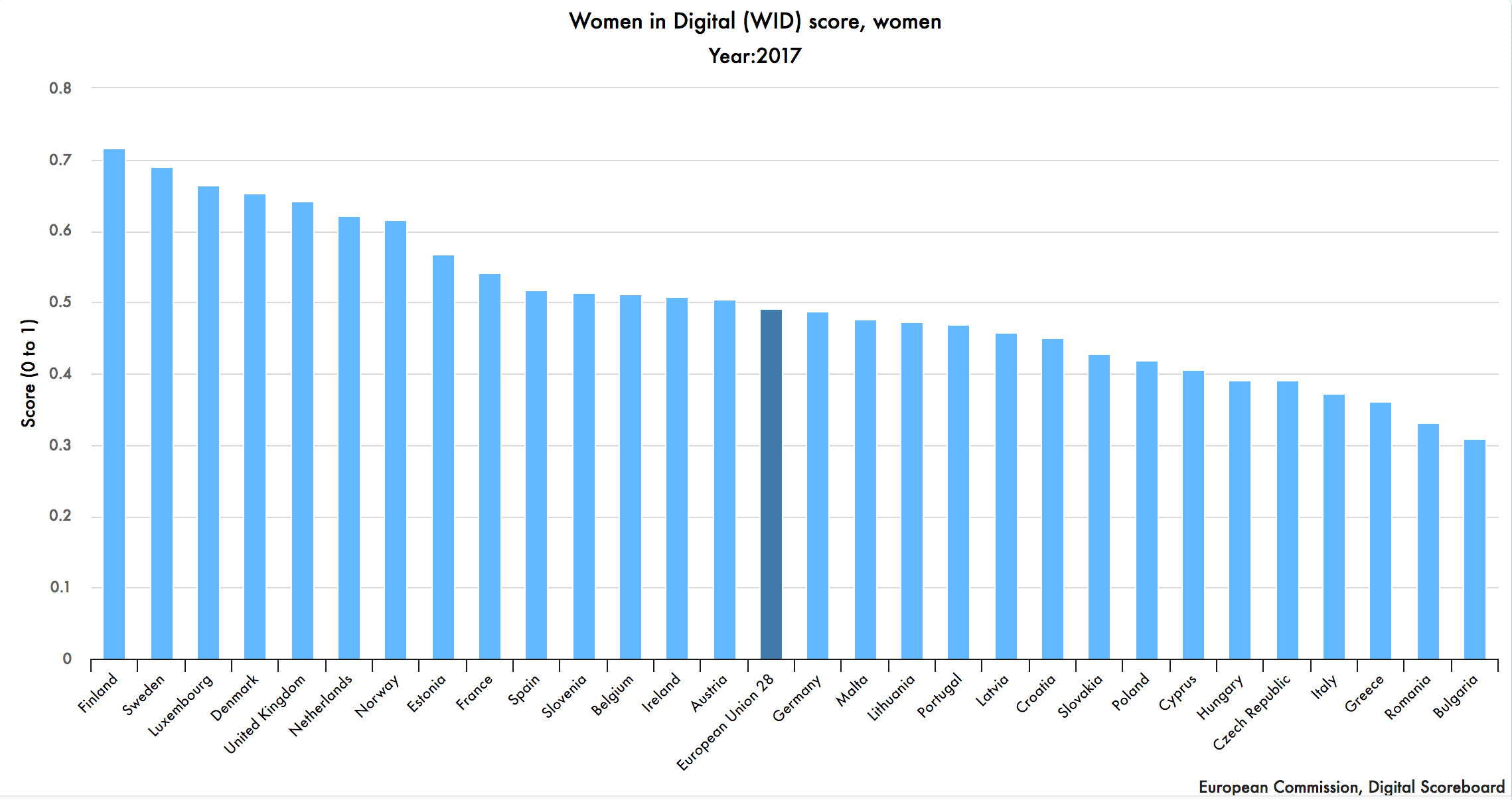The European Commission (EC) has reviewed and rated countries in Europe for gender equality in the digital economy. Finland, Sweden, Luxembourg and Denmark came top. Italy, Greece, Romania and Bulgaria came bottom.
Of the big three European economies, the UK ranked in fifth, just behind the leading pack, with France and Germany trailing in ninth and fifteenth, respectively. But the message from the study is women’s participation in the digital field in Europe lags behind in several areas.
The scoreboard, initiated by Mariya Gabriel (pictured), commissioner for the Digital Economy and Society, to assess women’s inclusion in digital jobs, found only a sixth of the information and communication technology (ICT) world is female (17 per cent), compared to half of the European population (52 per cent), at large.
Just one in three science, technology, engineering and mathematics (STEM) graduates is a woman, and women entering the ICT sector earn almost 20 per cent less than men.
The scorecard, part of the EC’s annual digital economy index, assesses the role of women in digital jobs in 28 European Union member states, plus Norway. It considers countries’ performance in the areas of internet usage and digital skills, based on 13 indicators. Top countries in its digital economy index appeared at the top of the gender equality review, as well.
There remains a gap in all 13 indicators at EU level, with some exceptions at country level. The gap is the largest in the area of specialist skills and employment, at 76 per cent for ICT specialists and 47 per cent for STEM graduates. Women score more highly on digital skills in Latvia, Slovenia, Bulgaria, Lithuania and Cyprus, despite some ranking at the bottom in the index overall.
Country performances can be reviewed in detail here.
Gabriel said: “We must fully unlock women’s potential in bringing a boost to the digital economy. Governments, companies, educators and civil society need to take decisive actions to change this trend.
“All together, we can promote women’s talents and make sure we encourage them to STEM study fields early on. Today, we have an extraordinary tool, the Women in Digital European Scoreboard that shows where exactly countries must improve women’s situation.
“It is time to deliver for young girls, women, all our citizens and businesses. Our Digital Europe will be inclusive, competitive & dynamic with their valuable contribution.”

